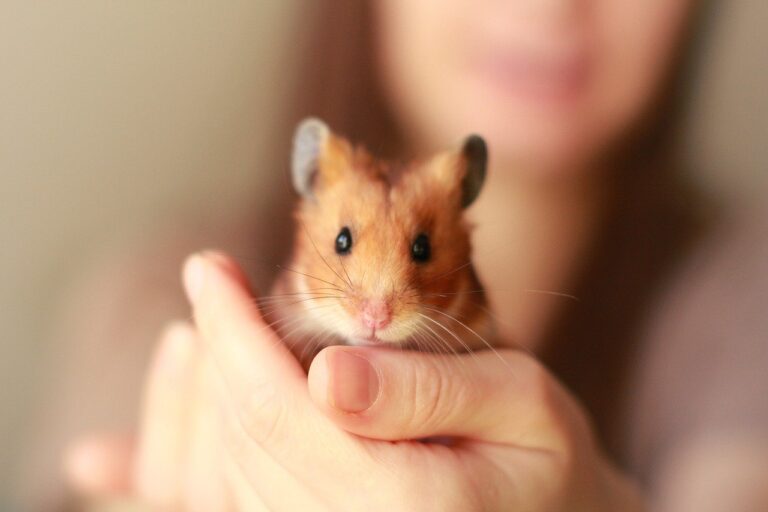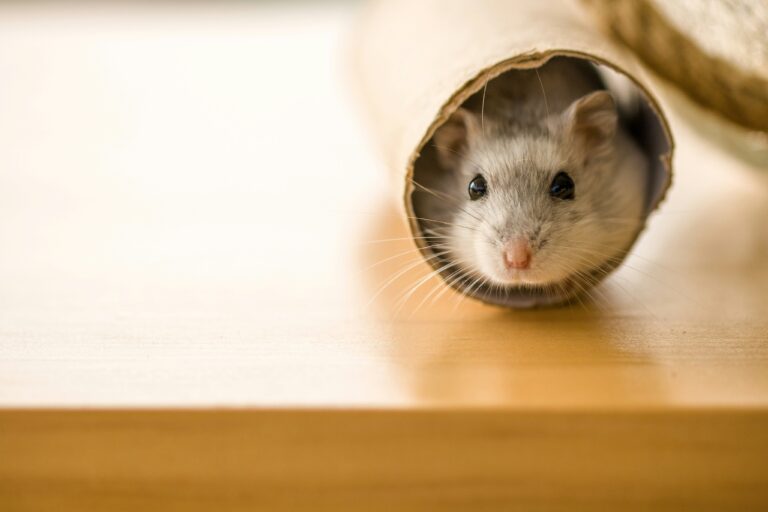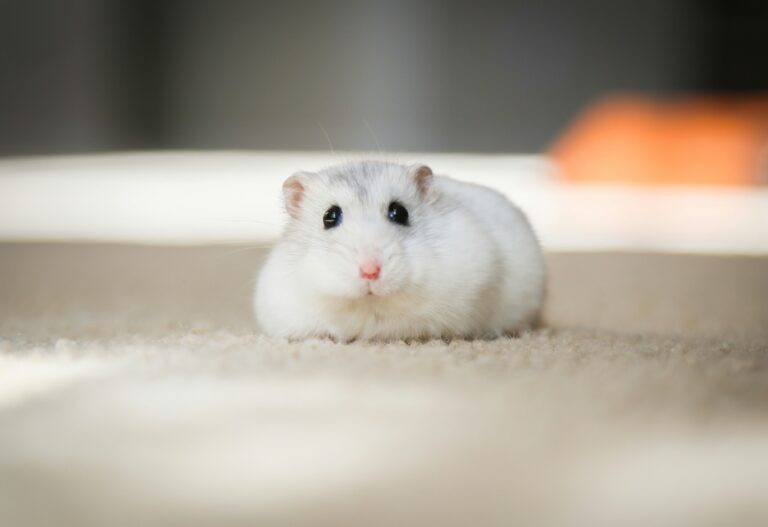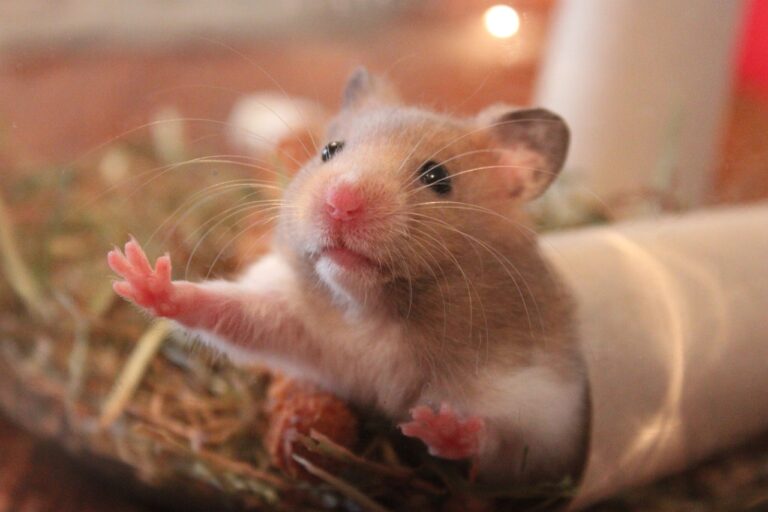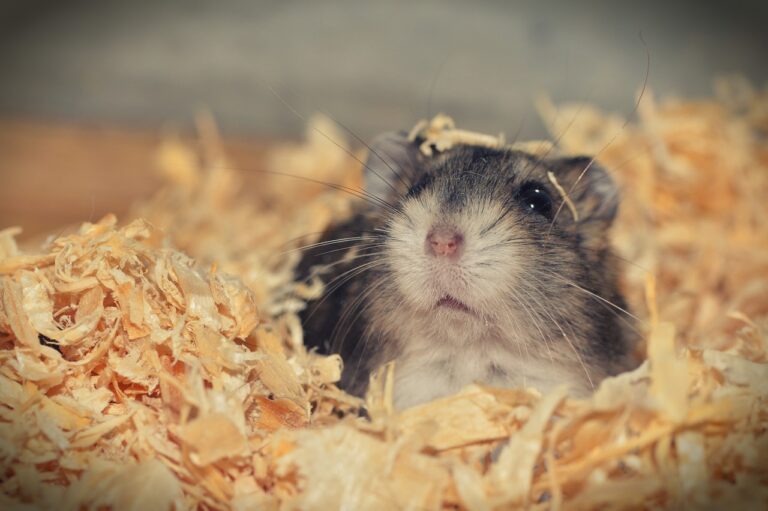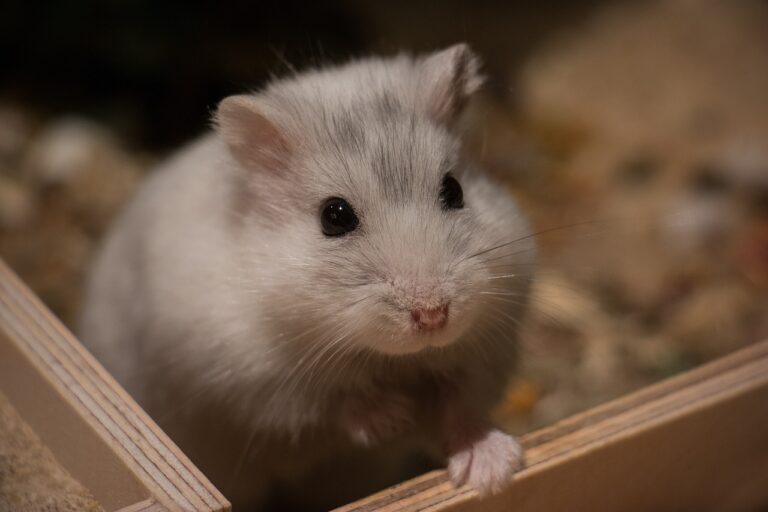Do Hamsters Make Good Pets?
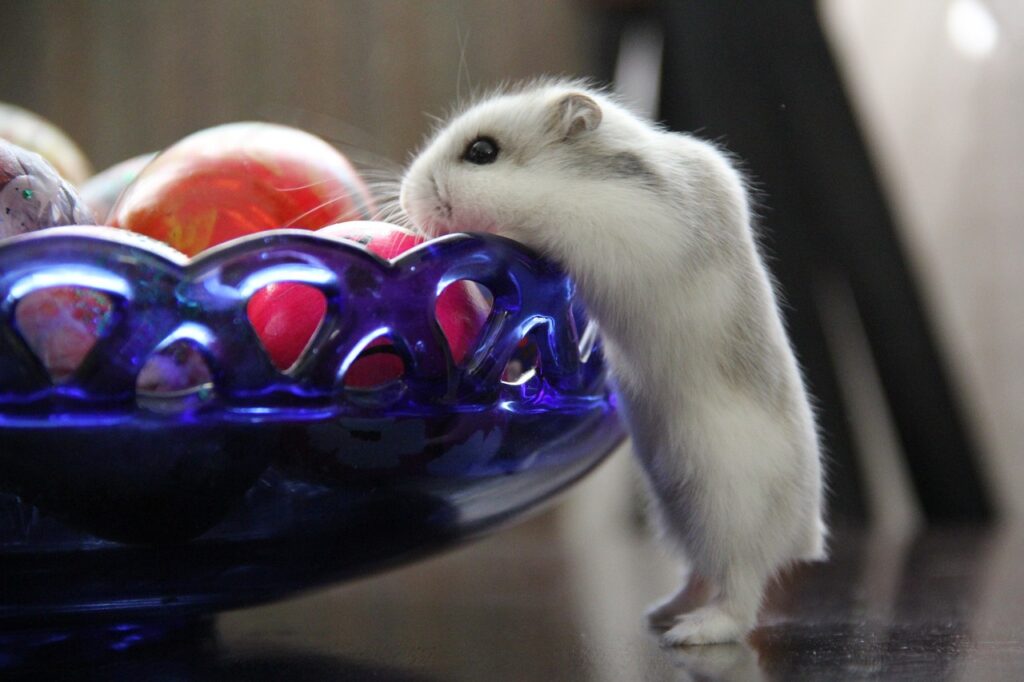
Hamsters, with their adorable, chubby faces and small size, have long been favored as pets by animal lovers of all ages. These small rodents, known for their playful antics and endearing personalities, make delightful companions for individuals and families alike. However, the decision to welcome a hamster into your home should not be taken lightly.
In this guide, we’ll explore the world of hamsters, examining their origins, behavior, care requirements, health considerations, and the factors to consider before bringing one into your life as a pet.
The World of Hamsters: Origins and Diversity
Hamsters belong to the subfamily Cricetinae within the rodent family Cricetidae. They are native to various regions of Europe, Asia, and the Middle East, where they inhabit a range of habitats, from arid deserts to grasslands and forests. The most commonly kept species as pets include Syrian hamsters (Mesocricetus auratus), dwarf hamsters (such as Campbell’s, Winter White, and Roborovski), and Chinese hamsters (Cricetulus griseus).
Each species of hamster possesses its own unique characteristics and behaviors, making them fascinating pets. Syrian hamsters, for example, are solitary creatures that prefer to live alone, while dwarf hamsters are more social and can often be housed in pairs or small groups under the right conditions. Chinese hamsters, on the other hand, are known for their agility and climbing abilities, which require a specialized habitat to accommodate their needs.
Pros and Cons of Hamster Ownership
Owning a hamster can be a rewarding experience, but it’s essential to consider both the advantages and disadvantages before making a commitment. Here are some of the pros and cons of hamster ownership:
Pros:
Low Maintenance: Hamsters are relatively low-maintenance pets, requiring only a clean habitat, regular feeding, and occasional handling. They do not require daily walks or grooming sessions like some other pets, making them ideal for individuals with busy lifestyles.
Compact Size: Hamsters are small and compact, making them suitable for apartment living or households with limited space. Their small size also means they require minimal supplies and equipment compared to larger pets.
Entertaining Behavior: Hamsters are playful and curious animals, exhibiting a wide range of behaviors that can be entertaining to watch. From running on their exercise wheel to burrowing in their bedding, hamsters are full of energy and personality.
Bonding Opportunities: While hamsters may not be as affectionate or interactive as some other pets, they can still form bonds with their owners through regular handling and positive interactions. With patience and gentle handling, many hamsters can become tame and enjoy spending time with their human companions.
Cons:
Short Lifespan: Hamsters have relatively short lifespans compared to some other pets, typically ranging from one to three years, depending on the species and individual health factors. This means that owners may experience the loss of their pet relatively soon after bringing them home.
Nocturnal Activity: As crepuscular animals, hamsters are most active during the early morning and evening hours, which may not align with the schedules of all pet owners. Individuals who prefer daytime companionship may find it challenging to interact with their hamster during their active periods.
Space Requirements: While hamsters are small, they still require adequate space to thrive. Owners must provide a suitable habitat with ample room for exercise, exploration, and burrowing. Cramped or overcrowded living conditions can lead to stress, boredom, and health issues in hamsters.
Solo Nature: Most species of hamsters are solitary animals and prefer to live alone. While some dwarf hamster species can coexist in pairs or small groups under the right conditions, Syrian hamsters are territorial and must be housed separately to prevent aggression.
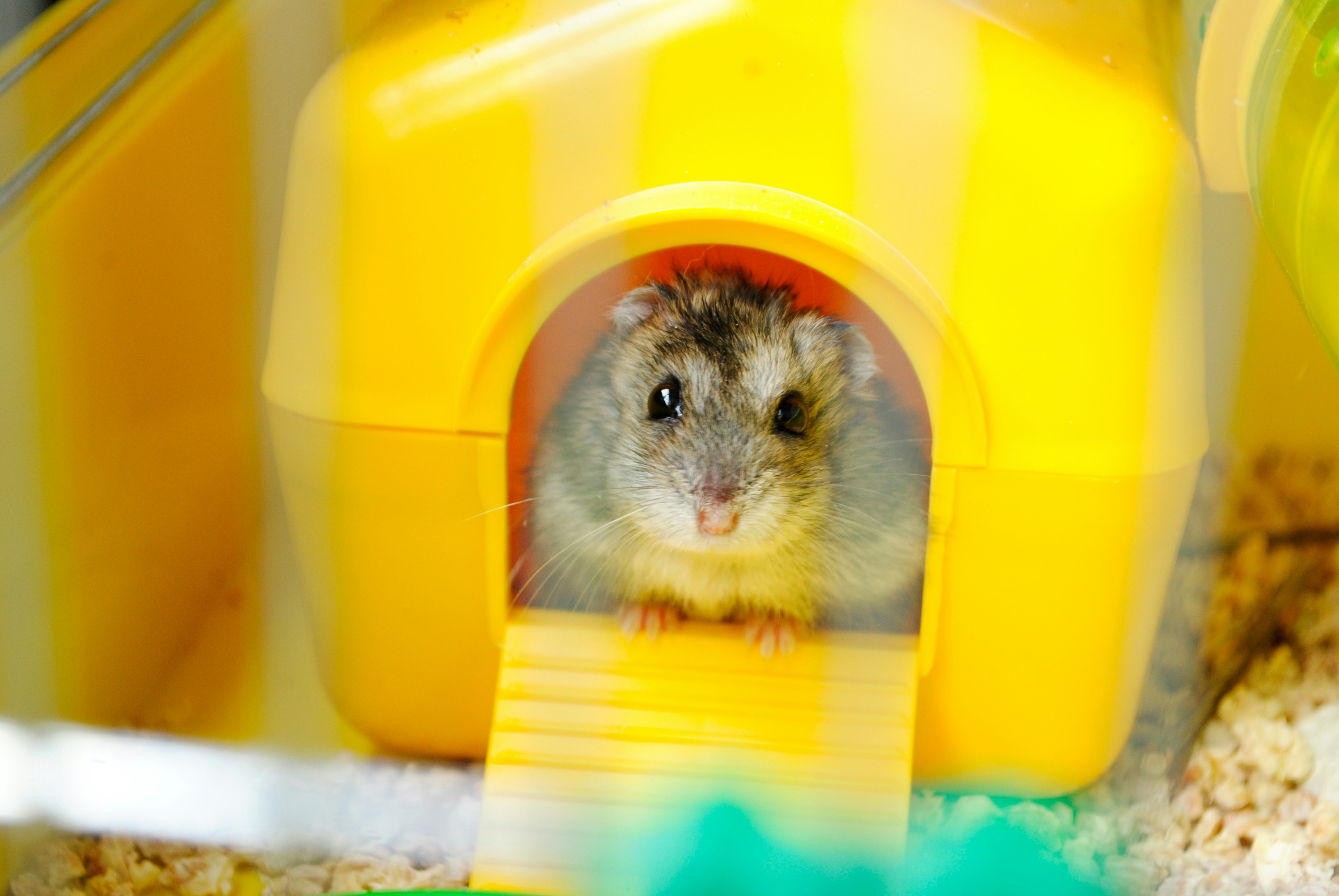
Understanding Hamster Behavior
To provide the best possible care for a pet hamster, it’s essential to understand their behavior and natural instincts. Hamsters are intelligent and curious animals that engage in a variety of behaviors to meet their needs and explore their environment. Some common behaviors exhibited by hamsters include:
Exploration: Hamsters are natural explorers and spend much of their time investigating their surroundings. They use their keen sense of smell and touch to navigate their environment and locate food sources.
Burrowing: Hamsters are skilled burrowers and enjoy digging tunnels and nests in their bedding. Providing ample bedding material allows hamsters to engage in this natural behavior and create a comfortable and secure environment.
Grooming: Hamsters are meticulous groomers and spend a significant amount of time grooming themselves to keep their fur clean and free of parasites. They may also groom their cage mates or objects in their habitat as a form of social behavior.
Chewing: Hamsters have continuously growing incisor teeth that require regular chewing to keep them trimmed and healthy. Providing chew toys and wooden blocks helps satisfy their natural chewing instinct and prevents dental problems.
Scent Marking: Hamsters use scent marking as a means of communication and territory marking. They are able to rub their scent glands against objects to leave their scent behind.
Care Requirements
Providing proper care for a pet hamster involves attention to several key areas:
Housing: Hamsters require a spacious and secure enclosure with plenty of room for exercise and exploration. Choose a cage with a solid base and well-ventilated sides, and provide bedding material such as paper-based bedding or aspen shavings for burrowing and nesting.
Diet: A balanced diet is essential for a hamster’s health and well-being. Feed your hamster a commercial hamster mix supplemented with fresh fruits, vegetables, and occasional treats such as mealworms or nuts. It’s crucial to avoid feeding hamsters foods that are high in sugar, fat, or toxic to their species.
Enrichment: Hamsters are intelligent animals that require mental stimulation to prevent boredom and encourage natural behaviors. Provide toys, tunnels, hiding spots, and an exercise wheel or saucer for physical activity. Rotate toys regularly to keep your hamster engaged and entertained.
Handling: Handling a hamster requires patience, gentleness, and respect for their boundaries. Start by allowing your hamster to become accustomed to your presence before attempting to handle them. When handling your hamster, support their body properly and avoid sudden movements or loud noises that may startle them.
Health Care: Regular veterinary check-ups are essential for monitoring your hamster’s health and detecting any potential health issues early on. Find a veterinarian experienced in treating small animals, such as hamsters, and schedule annual wellness exams to assess your hamster’s overall health and provide preventive care.
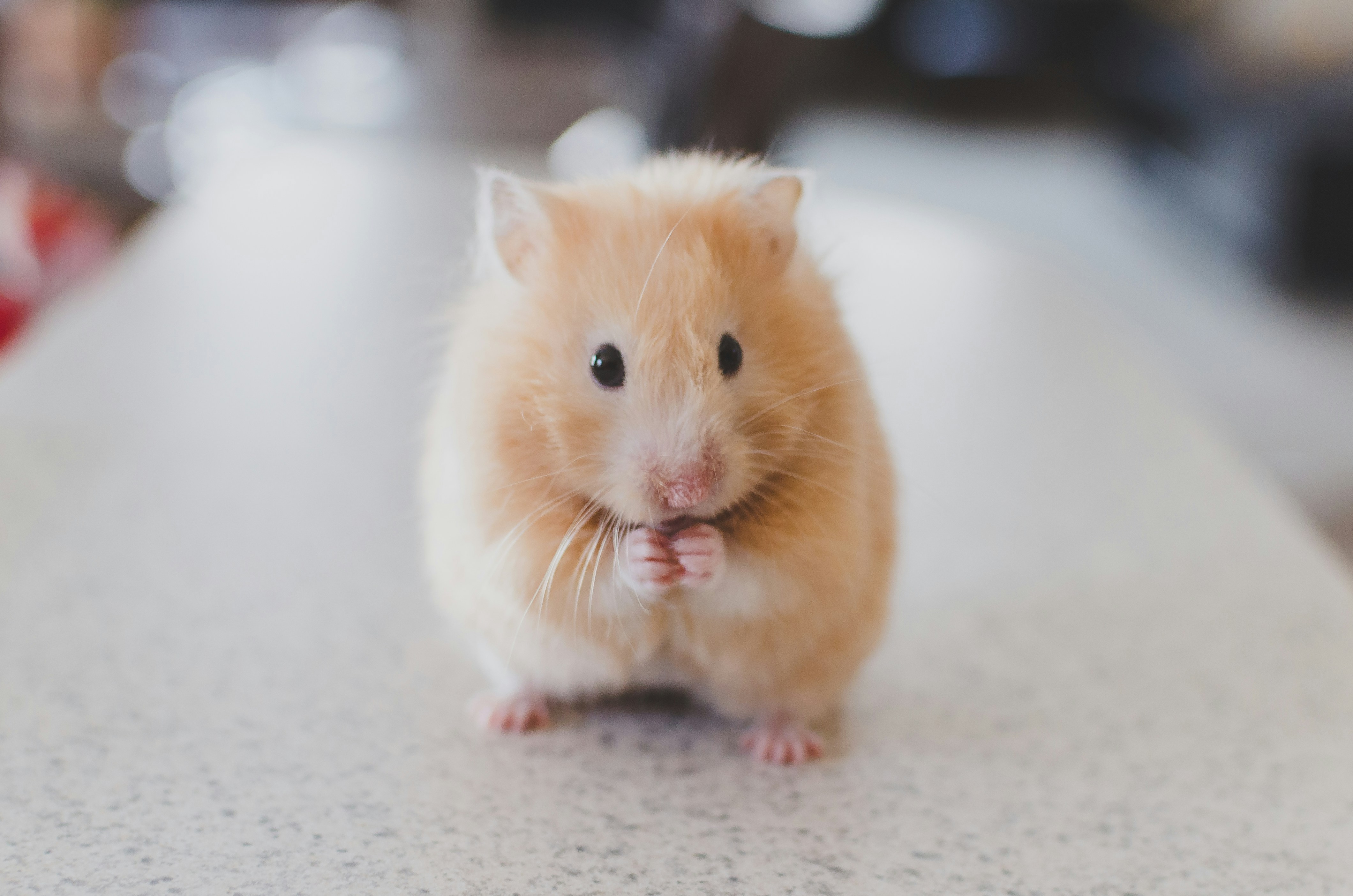
Health Considerations
Like all pets, hamsters are susceptible to certain health issues that require vigilance and prompt veterinary care. Common health concerns in hamsters include dental problems, respiratory infections, gastrointestinal issues, and external parasites. It’s essential to monitor your hamster’s behavior, appetite, and appearance for any signs of illness or discomfort and seek veterinary attention if necessary.
Dental Care: Dental problems are common in hamsters due to their continuously growing incisor teeth. Providing appropriate chew toys and a diet rich in fibrous foods can help keep their teeth trimmed and healthy. However, if a hamster’s teeth become overgrown or misaligned, it can lead to painful dental issues that require veterinary attention.
Respiratory Infections: Hamsters are susceptible to respiratory infections, especially if they are housed in damp or poorly ventilated environments. Symptoms of respiratory infections may include sneezing, wheezing, labored breathing, and nasal discharge. Prompt veterinary treatment with antibiotics is essential to treat respiratory infections and prevent complications.
Gastrointestinal Issues: Digestive problems such as diarrhea, constipation, and bloating can occur in hamsters due to dietary imbalances, stress, or underlying health conditions. Providing a balanced diet, access to fresh water, and regular opportunities for exercise can help prevent gastrointestinal issues. If a hamster shows signs of digestive distress, such as changes in stool consistency or decreased appetite, it’s essential to consult a veterinarian for diagnosis and treatment.
External Parasites: Hamsters are vulnerable to external parasites such as mites and fleas, which can cause itching, hair loss, and skin irritation. Regular grooming and habitat cleaning can help prevent parasite infestations, but if a hamster shows signs of infestation, such as scratching or excessive grooming, it’s important to seek veterinary care for appropriate treatment.
Legal Considerations
Before acquiring a hamster as a pet, it’s important to research and understand any legal restrictions or regulations that may apply to hamster ownership in your area. While hamsters are legal to keep as pets in most regions, some states or municipalities may have specific laws governing the possession and breeding of exotic animals, including hamsters. Familiarize yourself with local ordinances, permit requirements, and ethical guidelines to ensure compliance with legal and ethical standards.
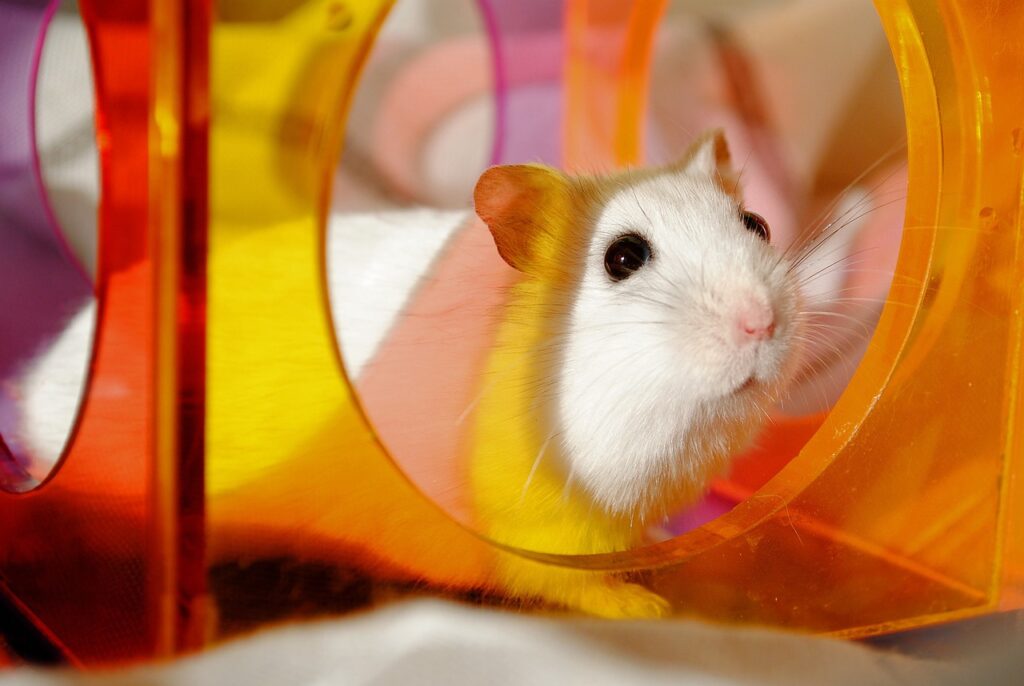
Conclusion
Hamsters can make delightful pets for the right individual or family, but they are not without their challenges. By understanding their behavior, care requirements, health considerations, and legal implications, prospective hamster owners can make an informed decision about whether a hamster is the right pet for them.
With proper care, love, and attention, a pet hamster can bring joy, companionship, and endless entertainment into your life for years to come. Remember, each hamster is a unique individual with its own personality and preferences, so take the time to get to know your furry friend and provide them with the best possible care and environment!

